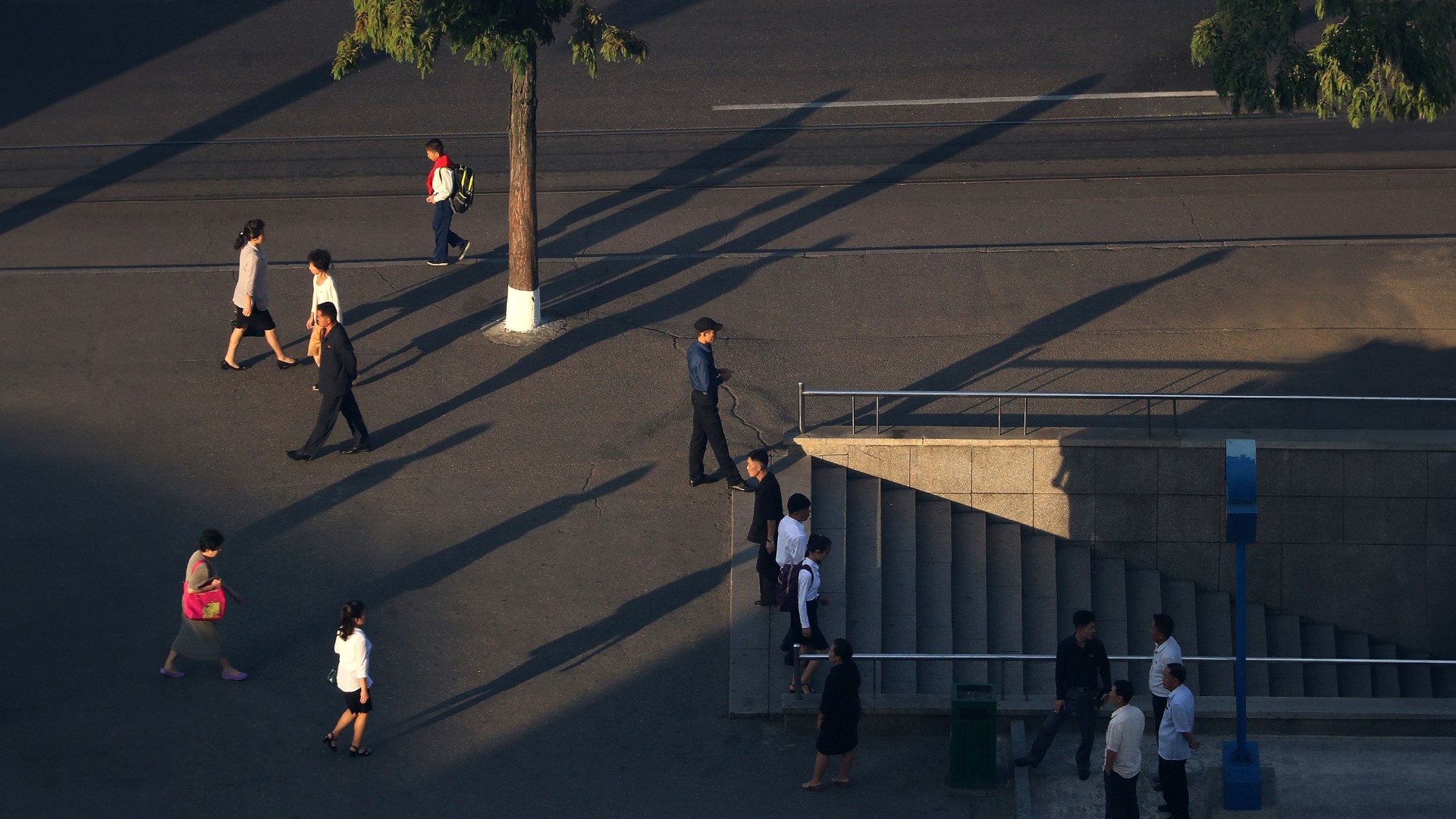The past seven years have been agonizing for any foreigner serving North Koreans.
Since 2017, the US has barred its citizens from going into North Korea without special permission, all but halting humanitarian organizations and businesses based in the US from operating there.
When COVID-19 hit in 2020, nearly all foreigners left China, including those serving near the North Korean border.
These two events have impacted how Christian nonprofits all over the world serve this isolated country, officially known as the Democratic People’s Republic of Korea (DPRK), which has ranked first for the past two decades on Open Doors’ World Watch List of countries where believers are most persecuted.
There is no clear indication of when the country’s borders, which were shut in 2020, will reopen again.
Certain travel measures have been scaled back. Last year, North Korea resumed international flights to China and Russia, and the country is now allowing tourists, mostly from China, to visit the city of Samjiyon this coming December, although Pyongyang and other parts of the country remain off limits.
South Korean authorities also reported that the number of North Korean defectors resettling in South Korea rose to 196 last year, after falling from 1,047 in 2019 to just 63 in 2021.
Engaging North Korea is one of two special interest tracks at the Fourth Lausanne Congress on World Evangelization in Incheon, South Korea, on September 22–28. Ahead of the gathering, CT asked five experts and practitioners, “What most concerns and excites you about opportunities to serve North Korea today?” Responses ranged from leaders who articulated the need to reassess particular ways of engagement to others who expressed greater optimism.
Heidi Linton, executive director of Christian Friends of Korea (CFK)
Christian Friends of Korea is a US-based nonprofit that works with churches and other organizations to support more than 35 care centers for tuberculosis and hepatitis in the DPRK.
We are not seeing much that is truly encouraging. The borders have only recently reopened—very narrowly and selectively—to government-sanctioned trade, tourists from mostly one country, very few diplomats, and their own citizens. So far, Western embassy staff, UN staff, and nonprofit staff have not been invited to return.
Since we all work at the invitation of and under facilitation by the government, the continuing uncertainty in this space for going on five years is concerning.
The needs on the ground in the current context—significant flooding across multiple provinces, unpredictable harvests, new laws and policies, and the overall health of the people—are concerning. There are much deeper concerns relating to decades-long capacity building in communicable disease control measures as well.
We are grateful for recent amendments to the US regulatory framework that have opened up a bit more space for humanitarian actions, whenever that again becomes possible. Regardless of what we may or may not see on a temporal level, we know that God is working faithfully to bring about his purposes for good and for his glory.
Jamie Kim, CEO of Reah International
Reah is a transnational Christian nonprofit that organizes retreats and conferences to equip believers for opportunities to pray, give, and serve in the DPRK.
I’m concerned for those who believe that a base in China is the best way to engage North Korea. With Chinese president Xi Jinping’s crackdown and emphasis on only allowing foreigners who benefit China to stay, non-Chinese people engaged in North Korea work will find it difficult to justify their long-term residence in China moving forward. Those who stay in China should be a contributor to China even as they desire to do something for North Korea. North Korea should be an extension of their contribution in China.
The most exciting part of DPRK engagement for me is thinking about how the global church can be prepared to serve once the country opens again. We don’t know when that will happen, but with the border opening more these days, I’m hopeful it will be soon.
Getting the global church ready can be done first through harnessing the capacity, both human and financial, of the South Korean church to host meetings to bring global church leaders and fieldworkers together for collaboration, with humility and a spirit of partnership.
Also, leaders in the US, Canada, and other Western nations that have engaged more with North Korea in the past can create a consultative network to share their expertise—and mistakes—with the global church through member care and leadership development.
Kim Sungeun, founder and president of Caleb Mission
Headquartered in South Korea and the US, this international Christian group serves North Korean defectors in South Korea.
I’m concerned that the lack of communication and sharing of information among groups serving North Koreans—due to the sensitive nature of their work—may sometimes lead to multiple organizations unknowingly providing similar assistance to the same defector or, in some cases, leaving defectors without any help at all.
One way to overcome this might be to have a single, secure communication channel where organizations that serve North Korea can unite, communicate, and share various opinions through policy discussions.
I am constantly excited by how the grace of God can lead someone who once lived in North Korea and served idols to accept Jesus Christ. Many defectors suffer from trauma and guilt even after reaching South Korea, leading to a high suicide rate among them. Therefore, it is essential to share the gospel of Jesus Christ with these defectors and guide them toward spiritual freedom, which is just as important as ensuring their physical freedom.
An anonymous humanitarian worker (name withheld for security)
When we had to leave North Korea in 2017 because of the travel restriction for US citizens, it was heartbreaking. But recently, another organization was able to send a few team members into North Korea, so we are hopeful and excited that we may also be able to return to working on the ground soon.
More than anything, we are looking forward to reconnecting with our North Korean counterparts, whom we have not seen face-to-face since the onset of COVID-19. It has been four years of distant communication.
A theme verse for our organization has been Isaiah 43:19: “Behold, I am doing a new thing; now it springs forth, do you not perceive it? I will make a way in the wilderness and rivers in the desert.” This is a new era for North Korea. We have a lot to learn as there have been many changes in the country during COVID-19.
Ben Torrey, director of the Fourth River Project
Based in Taebaek, South Korea, the Christian nonprofit prepares people going into North Korea through education and training.
With a fewer number of defectors from North Korea, many South Korean churches and organizations focused on helping defectors or providing education for them now find that there is less for them to do.
Nevertheless, we are excited at what has transpired over the past four years. Many people from other nations have come to South Korea to learn and prepare for their work in the North. The students at our center come from nations that have greater access to the North, and they learn the Korean language and culture during their time here.
Lately, some of our students have been attending and speaking at various Korean churches in the area to raise the importance of engaging North Korea from a Christian perspective. Students from South America and Asia were asked to speak about how God called them to serve North Korea, what they are doing to prepare to go in, and what they plan to do when they do go in.
Their sharing was well-received, and many people have developed a heart for the North that they did not have before. That is truly exciting.











































































